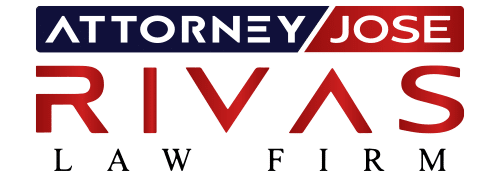“Anyone who enters or attempts to enter any building used in whole or in part as a bank, credit union, or savings and loan association with the intent to commit any felony affecting such financial institution or any larceny is subject to a fine, twenty years imprisonment or both.” – 18 U.S.C. § 2113
Virtually all bank robbery charges are federal charges and can land you in prison for decades. If someone is killed during the crime, the feds won’t hesitate to ask for the death penalty. And it won’t be the local state’s attorney prosecuting the case. When facing federal charges, you’re up against the vast power and resources of the United States Department of Justice.
It’s crucial to have a skilled and aggressive federal criminal attorney on your side. If you’re facing federal charges in Florida, contact the Orlando criminal defense attorneys at the Rivas Law Firm. Call 407-644-2466 for a free consultation.
What Happens if You Rob a Federal Bank?
When you rob a bank the feds come after you because most banks are federally insured. The FBI will investigate and arrest, and the US Department of Justice will bring charges in federal court. The punishment for bank robbery is a maximum sentence of 20 years in prison, and a fine of up to $250,000. The maximum penalty for armed bank robbery is 25 years in prison and a fine of up to $250,000.
There is a minimum 10-year prison sentence if there was a hostage situation (kidnapping) during the robbery or while attempting to flee the scene. If someone is killed during the crime, the sentence can be life in prison or the death penalty. According to FBI statistics, most federal sentences for robbery include an enhancement because “the offense involved the discharge of a firearm, the use, brandishing, or possession of a firearm or dangerous weapon, or a threat of death.”
The federal bank robbery law is a broadly worded statute titled 18 U.S.C. §2113: Bank Robbery and Incidental Crimes. It covers various types of theft-related crimes involving banks, credit unions, savings and loan associations, and other financial institutions. This statute also applies to the robbery of armored trucks, bank messengers, night depositories, and automatic teller machines (ATMs).
Incidental crimes include entering the bank with the intent to commit a crime. In other words, there’s no distinction between bank robbery and attempted bank robbery. There is a distinction between bank robbery and armed bank robbery. If, in a bank robbery or an attempted bank robbery, a defendant uses or brandishes any sort of weapon, the defendant faces the increased penalties that come with armed bank robbery. A weapon can be a knife, gun (loaded or unloaded), pellet gun, or a fake bomb.
Federal Bank Robbery Lawyer
If you are under investigation or indictment for federal bank robbery charges, a skilled federal criminal defense lawyer can help you challenge the evidence against you, raise a reasonable doubt about your guilt, and negotiate for a favorable plea deal or reduced sentence. Some of the possible defenses that your lawyer can use are:
– You did not use force, violence, or intimidation. To prove federal bank robbery, the prosecution must show that you took money or property from a bank by force or intimidation. This means that you used physical violence or threatened to harm someone or something. If you can show that you did not use any force or intimidation, such as by simply passing a note to the teller or taking money that was left unattended, you may be able to avoid a conviction for federal bank robbery and instead face a lesser charge of theft.
– You did not have the intent to steal or commit a felony. Another element of federal bank robbery is that you had the intent to steal or commit a felony affecting the bank. This means that you acted with a specific purpose and plan to take money or property from the bank or to commit another crime within the bank. If you can show that you did not have such intent, such as by proving that you were coerced, mistaken, mentally ill, or intoxicated, you may be able to undermine the prosecution’s case.
– You were misidentified or falsely accused. A common defense to federal bank robbery is that you were not the person who committed the crime. You may have an alibi, or witnesses made a mistake in identifying you, or the surveillance footage is unclear or tampered with, or if someone else framed you for the crime. If you can cast doubt on your identity as the perpetrator, you may be able to get your charges dismissed.
These are just some examples of how a defense lawyer can help you fight federal bank robbery charges. Each case is different and requires a thorough analysis of the facts and evidence. If you are facing federal bank robbery charges, you should contact an experienced criminal defense attorney as soon as possible to discuss your options and protect your rights.
Call 407-644-2466 for a free consultation with an Orlando Federal Bank Robbery Lawyer at the Rivas Law Firm.








